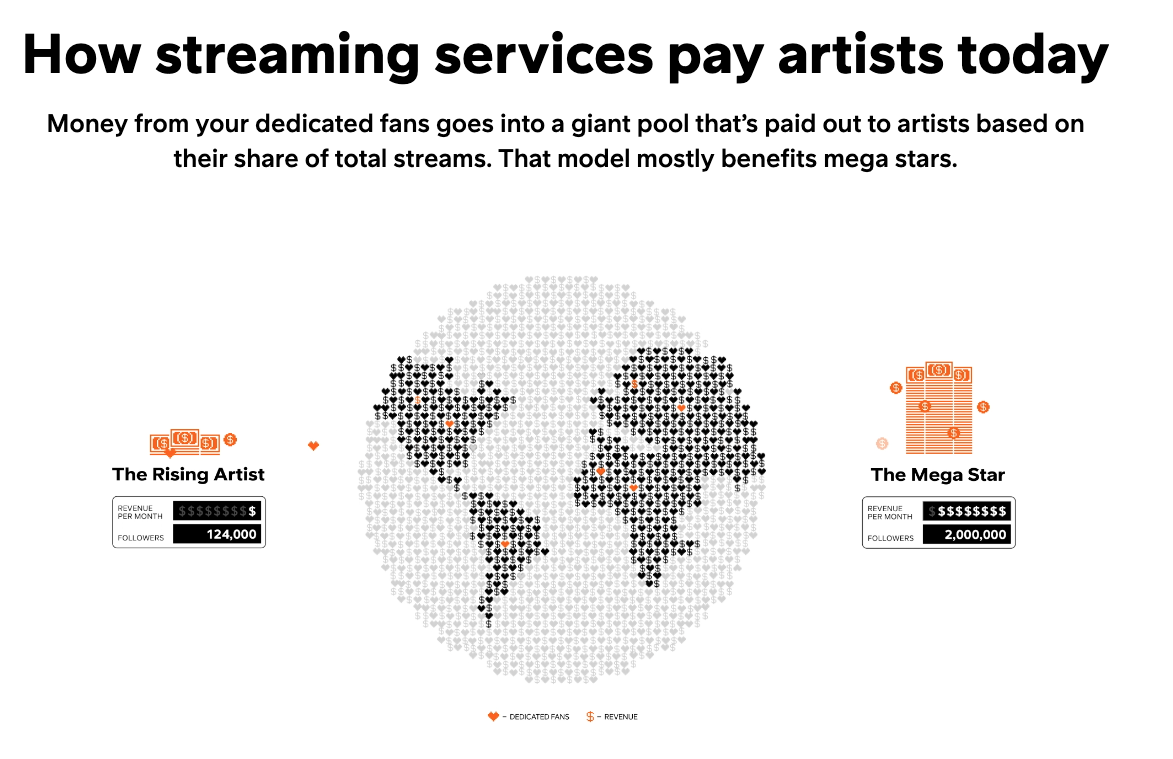Fan Powered Royalties
Our portfolio company SoundCloud is introducing fan powered royalties to share revenues more equitably with musicians.
The streaming music business pools its revenues and pays out based on a mathematical formula. There is no direct connection between a fan and artist. This graphic explains the existing model:

What SoundCloud is offering is that direct connection, explained here.
If you are an artist and you want to get fan powered royalties you can monetize directly on SoundCloud or via SoundCloud’s Repost service which allows you to monetize on SoundCloud and all of the other streaming platforms:
Artists can participate automatically in fan-powered royalties in three ways:
SoundCloud Premier: Premier is our monetization program for Pro Unlimited subscribers. Artists will be notified and prompted to join once they become eligible to monetize. Click here for Premier eligibility requirements.
Repost by SoundCloud: Repost by SoundCloud is for artists who want to reach fans everywhere by distributing their music to every major music service. There are no eligibility requirements to monetize with Repost by SoundCloud. You can subscribe to Repost by SoundCloud here.
Repost Select: While there are no eligibility requirements to monetize with Repost Select, it’s a program open to select Repost by SoundCloud subscribers via application or invitation only. Click here to apply or learn more.
While the pooling model has worked well to scale the streaming industry, it has not worked well for independent and emerging artists. This bit from SoundCloud’s Fan Powered Royalties page explains it well:
With fan-powered royalties, each listener’s subscription or advertising revenue is distributed among the artists they actually listen to, rather than being pooled. This new model benefits independent artists and empowers fans to play a larger role in the success of their favorite artists. It also encourages the growth of local scenes and the rise of new genres.
Fan-powered royalties benefit independent artists whose fanbases are dedicated to listening to their music frequently. So if a fan only listens to an early-stage rapper from Detroit or an emerging singer from France, most or all of their subscription or advertising revenue will go to those exact artists.
SoundCloud has always been about the emerging artists and I am glad to see them leading the industry to a more equitable model for revenue sharing.